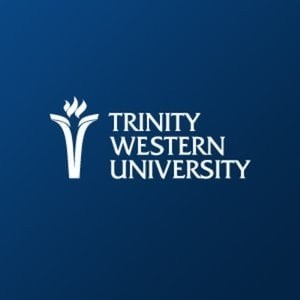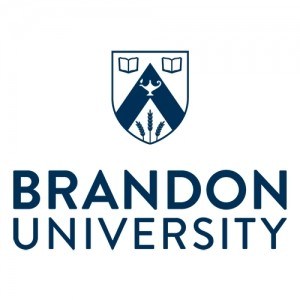Photos of university / #umanitoba
The Respiratory Therapy program at the University of Manitoba is a comprehensive undergraduate degree designed to prepare students for a dynamic and rewarding career in respiratory care. This program combines rigorous academic coursework with clinical training to equip graduates with the essential knowledge, skills, and competencies necessary to assess, monitor, and treat patients with respiratory and cardiopulmonary conditions. Students will explore a wide range of topics, including human anatomy and physiology, pathology, pharmacology, and specialized areas such as neonatal, pediatric, and adult respiratory care. The curriculum emphasizes evidence-based practice, critical thinking, and professional ethics to ensure that graduates are prepared to provide high-quality care in diverse healthcare settings.
Throughout the program, students engage in hands-on clinical placements in hospitals, clinics, and community health environments, gaining practical experience under the supervision of experienced respiratory therapists and healthcare professionals. These placements are integrated into the academic schedule to reinforce classroom learning and develop real-world skills in patient assessment, mechanical ventilation management, airway clearance techniques, and emergency response. The program also emphasizes interprofessional collaboration, communication skills, and cultural competence, recognizing their importance in delivering patient-centered care.
The University of Manitoba’s Respiratory Therapy program is accredited by relevant professional agencies, ensuring that graduates meet national standards for practice. Upon successful completion, graduates are eligible to write the national certification examination to become licensed respiratory therapists. The program fosters a supportive learning environment with access to modern laboratories, simulation facilities, and experienced faculty dedicated to student success. Graduates of the program are well-positioned for employment in hospitals, clinics, and community health organizations across Manitoba and beyond, contributing significantly to the health and well-being of individuals with respiratory health needs. With a strong foundation in science and clinical practice, students are prepared to advance in their careers, pursue postgraduate education, or engage in research to improve respiratory health care.
The Bachelor of Respiratory Therapy program at the University of Manitoba is a comprehensive, four-year undergraduate degree designed to prepare students for a dynamic and rewarding career in respiratory care. The program combines rigorous academic coursework with practical clinical training to equip students with the knowledge, skills, and competencies necessary to assess, treat, and manage patients with respiratory and cardiopulmonary disorders. Throughout the program, students will study various topics including human anatomy and physiology, pathophysiology of respiratory diseases, pharmacology, airway management, mechanical ventilation, and advanced respiratory therapy techniques. Emphasis is placed on developing strong critical thinking, communication, and teamwork skills essential for effective patient care.
Students will engage in laboratory sessions and hands-on clinical placements in diverse healthcare settings such as hospitals, community clinics, and specialized respiratory centers. These real-world experiences are integral to understanding the practical aspects of respiratory therapy, as well as working within multidisciplinary healthcare teams. The program also focuses on fostering ethical practice, cultural competence, and evidence-based decision-making to ensure high-quality patient care. Graduates of the program will be eligible to write certification examinations to become licensed respiratory therapists, enabling them to contribute significantly to patient recovery and well-being across a wide range of medical environments.
The curriculum is designed to meet the standards of professional accreditation bodies and is regularly reviewed to incorporate the latest advances in the field. In addition to technical expertise, students will develop leadership skills and an understanding of health promotion and disease prevention strategies. The program also offers opportunities for research and specialization in areas such as neonatal or pediatric respiratory care, pulmonary rehabilitation, or sleep medicine.
Graduates of the University of Manitoba’s Respiratory Therapy program leave well-prepared for employment in hospitals, clinics, and other healthcare organizations across Manitoba and beyond. They play a vital role in supporting patients with respiratory challenges, especially in critical care and emergency situations. The program is committed to producing competent, compassionate, and innovative respiratory therapists who are dedicated to advancing respiratory health and improving patient outcomes in a rapidly evolving healthcare landscape.
Program requirements for the Bachelor of Science in Respiratory Therapy at the University of Manitoba include several foundational and advanced components designed to prepare students for professional practice. Prospective students must have completed the Manitoba High School graduation or equivalent with a strong background in sciences such as biology, chemistry, and mathematics. Admission typically requires a competitive academic record, including prerequisite courses like Biology with laboratory component, Chemistry, and Math, often at the grade 12 level or equivalent.
Applicants are also expected to demonstrate skills in critical thinking, communication, and teamwork, which are essential in clinical practice environments. English language proficiency is mandatory for non-native speakers, usually evidenced through standardized tests such as TOEFL or IELTS, aligning with university requirements.
Acceptance into the program involves an application process through the university's admissions portal, accompanied by transcripts, standardized test scores if applicable, and possibly letters of recommendation or a personal statement demonstrating interest in respiratory therapy. The program itself encompasses a combination of classroom instruction, laboratory sessions, and clinical placements to ensure comprehensive training. Courses cover topics such as human anatomy and physiology, pathophysiology, pulmonary medicine, pharmacology, and clinical practices specific to respiratory therapy.
Students are required to complete a specified number of clinical hours at designated healthcare facilities under supervision, gaining hands-on experience. Additionally, participation in workshops, seminars, and interprofessional education activities is emphasized. To graduate, students must achieve a minimum grade point average set by the faculty, fulfill all required courses with passing grades, and complete a final clinical competency assessment.
Aside from academic performance, students are expected to adhere to the ethical and professional standards outlined by the College of Respiratory Therapists of Manitoba and the university's code of conduct. Upon graduation, students are eligible to write the certification exams administered by the national certifying body, which is a requisite for licensure and official practice as a respiratory therapist in Manitoba and across Canada.
Financing for the Respiratory Therapy program at the University of Manitoba is available through various sources including government/student loans, scholarships, bursaries, and financial aid programs. Canadian citizens and permanent residents may access federal and provincial student loan programs such as the Canada Student Loans Program and Manitoba Student Assistance Program. These loans assist students with covering tuition fees, textbooks, living expenses, and other educational costs. Additionally, the university offers numerous scholarships and bursaries specific to health sciences and respiratory therapy students based on academic achievement, financial need, or other criteria. Applicants are encouraged to complete the online bursary application and student financial aid forms to be considered for these funding opportunities.
Furthermore, students may explore external funding sources such as private scholarships, employer sponsorships, or community grants related to healthcare education. Part-time work opportunities on campus, such as research or administrative assistant positions, can also provide supplementary income. The university’s financial services office provides detailed guidance on the application process for available funding, deadlines, and eligibility requirements. International students should verify specific funding options available to them, which may include international scholarships or third-party funding. It is recommended that prospective and current students carefully plan their finances early in their academic journey to ensure they meet all costs associated with the Respiratory Therapy program. The program’s tuition fees are publicly available on the university’s website and are subject to change annually; students should consult the official site for current rates. Ultimately, a combination of government aid, institutional scholarships, personal savings, and employment can effectively finance the pursuit of a degree in respiratory therapy at the University of Manitoba, ensuring students can focus on their clinical and academic training without undue financial stress.
The Bachelor of Science in Respiratory Therapy at the University of Manitoba is a comprehensive undergraduate program designed to prepare students for a career as a respiratory therapist. The program spans four years and combines theoretical coursework with practical clinical training to ensure graduates are well-equipped with the necessary skills and knowledge to provide respiratory care across diverse healthcare settings.
Students in the program engage in a wide range of courses covering human anatomy and physiology, pathology, pharmacology, respiratory care procedures, and patient assessment. The curriculum emphasizes critical thinking, clinical decision-making, and effective communication skills, enabling students to interact effectively with patients, physicians, and other healthcare professionals. The program also incorporates state-of-the-art simulation labs and clinical placements in hospitals and clinics to provide hands-on experience in managing respiratory conditions such as asthma, COPD, ARDS, and other respiratory failures.
Admission to the program requires completion of prerequisites in sciences and prior academic achievement exemplifying strong foundational knowledge. Students are expected to demonstrate a commitment to health sciences and a desire to help others, aligning with the profession’s focus on patient-centered care. Throughout the program, students are mentored by experienced professionals and faculty members who are leaders in respiratory therapy education and research.
Graduates of the program are eligible to write certification exams from the Canadian Society of Respiratory Therapists (CSRT) and are prepared to work in various settings, including hospitals, clinics, community health organizations, and rehabilitation centers. The program also fosters opportunities for research and continuing education, supporting graduates in lifelong learning and professional development.
The University of Manitoba’s respiratory therapy program is accredited by relevant educational and professional bodies, ensuring it meets national standards and maintains a high level of educational quality. With a strong emphasis on practical skills, evidence-based practice, and compassionate patient care, the program aims to produce competent respiratory therapists who can contribute effectively to modern healthcare environments.


